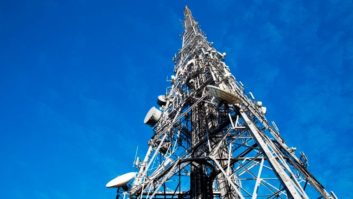UK spectrum regulator Ofcom says any thoughts that Britain’s public broadcasters can access new spectrum for HDTV services must wait until “at least” 2007. First up is a consultation period following the publication in December of its Digital Dividend Review, writes Chris Forrester.
Speaking at a recent HDTV conference, Ofcom director of Strategic Resources, Peter Bury, said: “The one thing Ofcom can say is we are 99.99% certain that we do not want another switchover. We have all laboured long and hard, and are encouraged by the rate at which [the current] digital switchover is taking place.
“We are confident that the 2012 end date will be met, and that the [plan] will be a success. To even give the slightest indication to the public that there will be another further change having just completed an MPEG-2 switchover, and to MPEG-4, is inconceivable. One should never say never, of course, but it’s hard for me to see a further digital switchover in my working lifetime.”
Bury praised satellite for its HD deployment, saying that HD was already “a fantastic success, with real services being launched to real customers who are paying real money to watch great pictures and experiences on their TV. And arguably these platforms are better suited for bandwidth-hungry HD.”
Bury added that it was difficult to see any sort of HD service rolling out on a region by region basis, as analogue is switched off (starting in 2008). “I do not think our starting point is that any [released] spectrum will be labelled HD. The likelihood is that spectrum is spectrum and that it can be used for a number of things on a technologically neutral basis. As to releasing spectrum on a regional basis there are options available, but I am not in a position to give further information at the moment. These choices are not yet made.”
The BBC’s Head of HDTV, Seetha Kumar, refused to be drawn on what might happen following the current HD terrestrial trial (in the London area) and HD transmissions on satellite and cable, insisting that the trial was scheduled for 12 months and still had seven months to go, when the engineering results would be examined and subject to scrutiny. She declined to give any indication that the trial would migrate into a full service.






